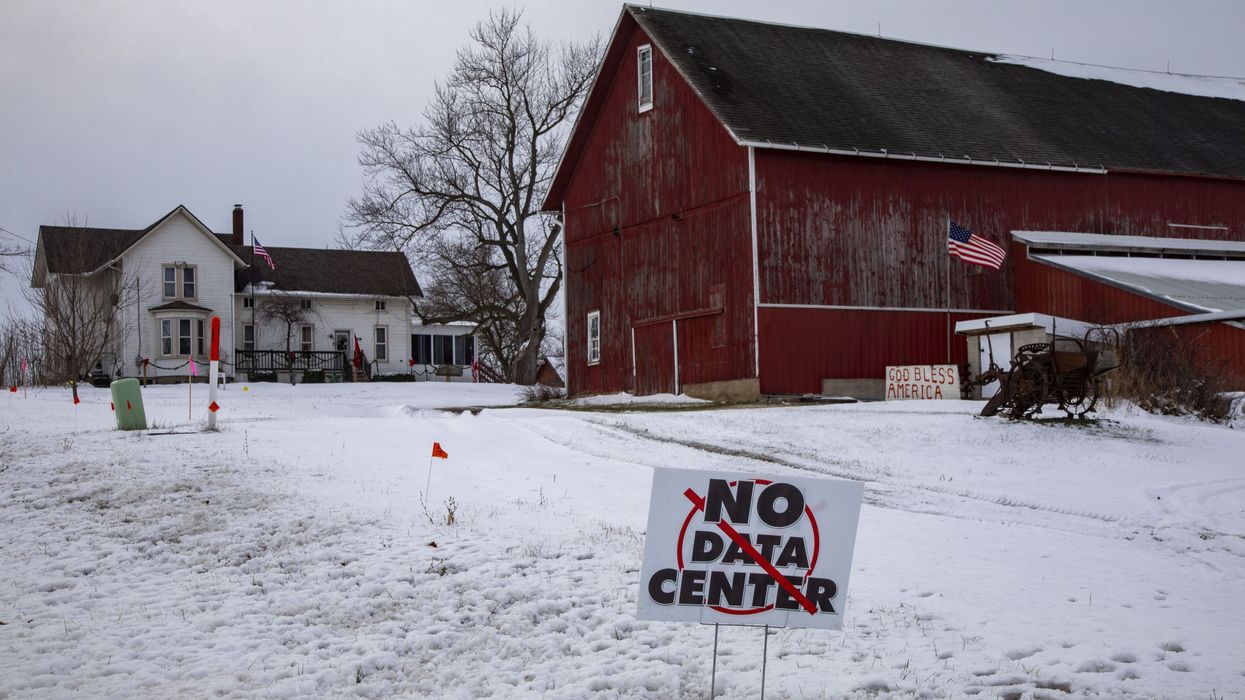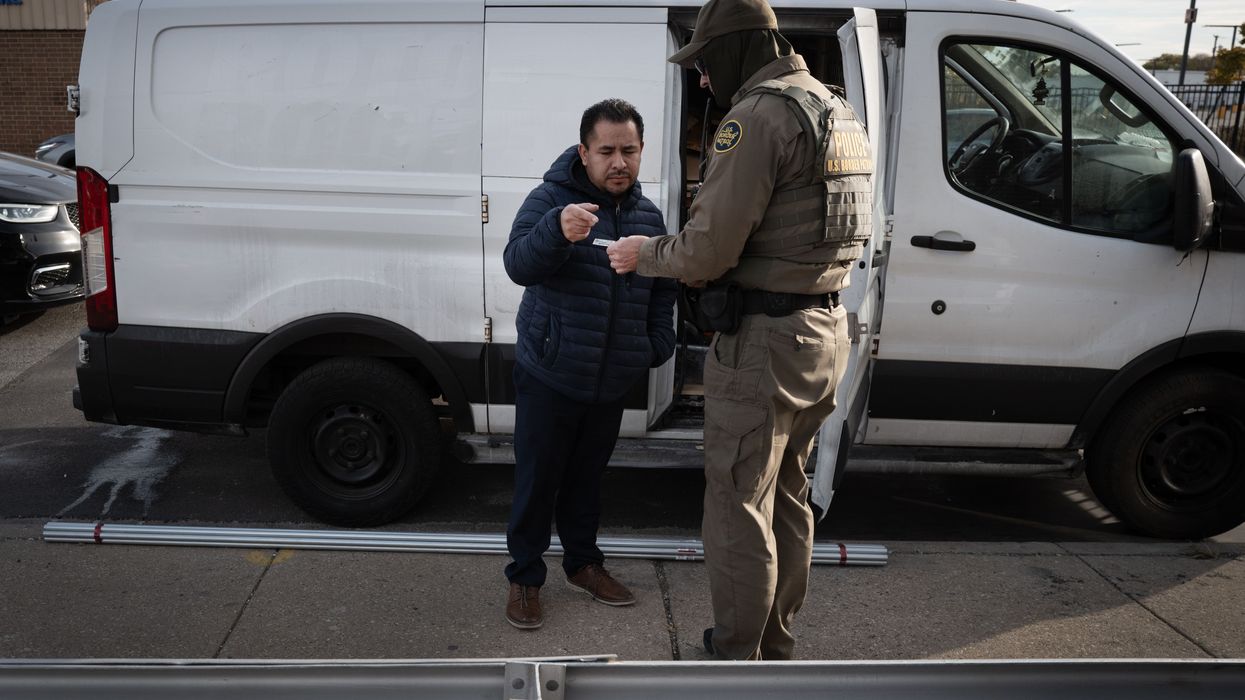July, 23 2019, 12:00am EDT

For Immediate Release
Contact:
Queen Adesuyi, 202-810-1481
Matt Sutton, 212-613-8026, msutton@drugpolicy.org
House Judiciary Chairman Jerry Nadler and Senator Kamala Harris Introduce Sweeping Marijuana Reform Bill
Bill Would Remove Marijuana from Controlled Substances Act and Ensure Reparative Justice and Equity in Legalization
WASHINGTON
Today, House Judiciary Committee Chairman Jerry Nadler (D-NY) and Senator Kamala Harris (D-CA) introduced the Marijuana Opportunity Reinvestment and Expungement Act (MORE Act), which would de-schedule marijuana at the federal level and begin to rectify the extensive damage done by prohibition.
"For decades, low-income communities and people of color have borne the brunt of over-enforcement of failed marijuana laws and the life-long collateral consequences that follow a marijuana arrest," said Queen Adesuyi, policy coordinator for the Drug Policy Alliance. "While we won't be able to repair that destruction overnight, the MORE Act ends prohibition in a fair and just way that begins to give back to those most affected."
The MORE Act goes even further than previous bills and echoes a new set of principles for federal marijuana reform developed by DPA and other members of the Marijuana Justice Coalition, focused on racial justice and giving back to those most harmed by prohibition.
To do that, this bill would tax marijuana products at five percent to establish a trust fund which would:
- Provide grants to communities negatively impacted by the drug war for the development of record expungement processes, employment programs, reentry guidance, youth resources, and more
- Create more access to substance use treatment
- Encourage socially and economically disadvantaged people to enter the cannabis industry
- Create equitable licensing programs in states and local governments that benefit communities most impacted by prohibition
The legislation also aims to correct the historical injustices caused by prohibition by:
- Preventing the government from denying an individual federal benefits, student financial aid, or security clearances needed to obtain government jobs because of marijuana use
- Providing an opportunity for those convicted under marijuana laws to petition for resentencing and expungement
- Protecting immigrants that are at risk of deportation or citizenship denial based on a simple marijuana infraction
And to hold the industry accountable and ensure equity among those most harmed by prohibition, the MORE Act instructs the Bureau of Labor Statistics to collect demographic data on the marijuana industry to guarantee people of color and those most economically disadvantaged are participating.
Sixty-eight percent of American voters support marijuana legalization. Thirty-three states plus the District of Columbia have laws that allow legal access to medical marijuana and 11 states plus the District of Columbia allow legal access to marijuana for adult use. Yet the continued enforcement of marijuana prohibition laws are responsible for more than 600,000 arrests in the United States every year. Black and brown people are disproportionately impacted, being four times more likely to be arrested for possession of marijuana than white people despite equal rates of consumption. Marijuana has also been one of the leading causes of deportation in the U.S.
The Drug Policy Alliance is the nation's leading organization promoting drug policies grounded in science, compassion, health and human rights.
(212) 613-8020LATEST NEWS
'It's All About the Oil,' Says Venezuelan Defense Minister After 'Incoherent' Trump Claims
The minister also echoed Venezuelan President Nicolás Maduro's declaration that the US seizing oil tankers is "piracy."
Dec 18, 2025
As President Donald Trump continues his march toward a US war on Venezuela, the South American country's defense minister on Wednesday blasted his "delusional" and "completely incoherent" claims, and echoed warnings from around the world that "it's all about the oil."
In addition to killing nearly 100 people by bombing alleged drug smuggling boats, Trump has authorized covert Central Intelligence Agency action in Venezuela and repeatedly threatened attacks on land. Late Tuesday, Trump declared a naval blockade that he said will continue until the nation returns to the US "all of the Oil, Land, and other Assets that they previously stole from us."
Trump appears to be referring to the presence that US companies had in Venezuela before the country nationalized its oil industry in the 1970s. On Wednesday, the Republican president told reporters: "Getting land, oil rights, whatever we had—they took it away because we had a president that maybe wasn't watching. But they're not gonna do that. We want it back. They took our oil rights. We had a lot of oil there. As you know, they threw our companies out, and we want it back."
In a Wednesday speech, Venezuela's defense minister, Vladimir Padrino López, pushed back against Trump's blockade, threats of military action, and "delirious" claims that the country stole its own oil, land, and other assets from the United States. The minister also reiterated a declaration from Venezuelan President Nicolás Maduro that the US seizing oil tankers is "piracy."
As CNN reported, Maduro—whom Trump aims to oust from power—gave a similar speech about the US administration's purported goal of combating drug trafficking in Caracas on Wednesday.
"It is simply a warmongering and colonialist pretense, and we have said so many times, and now everyone sees the truth. The truth has been revealed," Maduro said. "The aim in Venezuela is a regime change to impose a puppet government that wouldn't last 47 hours, that would hand over the Constitution, sovereignty, and all the wealth, turning Venezuela into a colony. It will simply never happen."
According to Anadolu Agency, Venezuelan Vice President Delcy Rodríguez said on social media this week: "We will continue to be free and independent in our energy relations. Together with President Nicolás Maduro, we will continue to defend the homeland.”
Although the Republican-controlled US House of Representatives on Wednesday night narrowly defeated a pair of war powers resolutions aimed at reining in Trump's actions toward Venezuela, lawmakers from both major parties have also called out the administration's drug claims and argued against launching another US war for oil.
Responding to a clip of Trump's comments to reporters on Wednesday, US Rep. Gregory Meeks (D-NY), who sponsored one of the resolutions, wrote on social media: "I've said it many times before: This is not about drugs. If the goal were stopping narcotics, this administration would not be talking about oil rights or seizing tankers. That is not a lawful basis for war."
Rep. Thomas Massie (R-Ky.), one of the few Republicans who supported the resolutions, took to the House floor ahead of the votes on Wednesday to denounce Trump's march toward an unconstitutional war and declare that "this is about oil and regime change."
Keep ReadingShow Less
Big Tech Ramps Up Propaganda Blitz As AI Data Centers Become Toxic With Voters
One Michigan state legislator said data centers are emblematic of the divide between "tech billionaires who are seizing power and… the working and middle classes."
Dec 18, 2025
As voters across the country begin to rally against the unchecked construction of data centers, artificial intelligence companies are panicking and investing millions into propaganda to paint the energy-sucking facilities in a more positive light.
By 2030, the amount of energy demanded by US data centers is expected to more than double, according to the International Energy Agency.
Energy costs have spiked considerably in the states with the most data centers. And as the industry continues its breakneck expansion, one watchdog report found that consumers on America's largest electric grid are expected to pay hundreds of dollars more to meet increased power demand from now until 2027.
These costs became an unexpected point of emphasis for Democrats in November, whose calls for greater transparency from tech companies seeking to build data centers propelled them to victory in elections from New Jersey to Virginia.
But tech companies want to keep building, and as AI threatens to become a central villain of the 2026 midterm elections, Politico reports that companies are putting the wheels in motion to portray themselves "as job creators and economic drivers rather than resource-hungry land hogs."
As Gabby Miller wrote on Wednesday:
A new AI trade group is distributing talking points to members of Congress and organizing local data center field trips to better pitch voters on their value. Another trade association, the Data Center Coalition, nearly tripled its lobbying spend in the third quarter of this year from the previous quarter, according to US lobbying disclosures.
The social media giant Meta, with billions invested in its own fleet of data centers from Stanton Springs, Georgia, to Richland Parish, Louisiana, has been running a multimillion-dollar ad campaign depicting data centers as a boon to agricultural towns in Iowa and New Mexico. It has spent at least $5 million nationally in the past month on TV ads plugging Meta’s $600 billion pledged investment in tech infrastructure and jobs.“
"There’s a very bad connotation around data centers. And this is something that, frankly, the data center industry needs to figure out,” said Caleb Max, president and CEO of the National Artificial Intelligence Association, a new trade group established in January to accelerate AI infrastructure development.
Tech giants are also putting focus on swaying policymakers. Max told Politico that his group has been making the rounds to talk with elected officials in critical battlegrounds for the AI future, like Georgia, Ohio, and Texas, to craft a "positive pro-data center campaign message for elected officials, for businesses, for current lawmakers who are going to be up for reelection in 2026."
Meanwhile, Meta reportedly aired its 30-second TV spots "featuring small-town imagery of farming equipment and mom-and-pop diners" in Washington, DC, and nine state capitals. Miller says this suggests "that policymakers might be Meta’s real target audience, rather than the rural Americans impacted by these energy-hungry server hubs."
AI and tech firms plan to ramp up the lobbying and ad blitzes as the next election draws nearer, and their attempt to reframe the narrative about data centers comes as no surprise, as communities across the US in recent months have increasingly come out in force to push their representatives to halt the construction of the facilities.
In Saline Township, a small community just outside Ann Arbor, Michigan, more than 800 residents descended upon a public input session earlier this month to protest against the construction of a $7 billion center—predicted to consume as much energy as the entire city of Detroit—fearing it would raise energy costs, pollute groundwater, and force the state to abandon its nation-leading climate policies.
The town initially blocked the plans, but reversed course following a lawsuit from a real-estate billionaire closely aligned with President Donald Trump, whose administration has backed the $500 billion "Stargate" initiative by OpenAI, SoftBank, and Oracle to expand data centers.
On Tuesday, Michigan Attorney General Dana Nessel joined Saline residents at a gathering outside the state Capitol, where they called for a statewide moratorium on data centers.
Data center projects have run into similar resistance nationwide. As of March, the group Data Center Watch found that more than $64 billion worth of projects had been blocked or delayed due to local opposition since May 2024. This opposition has reached a fever pitch in recent months.
Last week, after it received hundreds of angry comments from residents, the city council of Chandler, Arizona, unanimously rejected plans for a $2.5 billion data center that had been pushed by former US Sen.-turned lobbyist Kyrsten Sinema (D-Ariz.).
Even in Trump country, backlash has been fierce. Last week, the planning commission of Starke County, Indiana, voted unanimously to recommend a one-year moratorium on the construction of centers bigger than 5,000 square feet after residents flooded a meeting to raise concerns about water pollution and energy costs.
"In Memphis, Tennessee, Elon Musk's AI company has built a data center whose energy demands have outgrown the region's energy capabilities," said one resident, Sophia Parker. "We've heard from everyone else saying that our infrastructure does not have the capacity to support a data center. And as a result, gas turbines are emitting nitrogen oxide to the point where residents cannot breathe. Their community is being used as a sacrifice for others to get rich. We cannot allow that to happen to us."
Last month in Montour County, Pennsylvania—a state where electric prices have surged by 15% this year, double the national average—environmentalists formed an uncommon alliance with conservative farmers and the Amish to stop the county planning commission from rezoning 1,300 acres of agricultural land for a massive new center.
“Stay out. We wouldn’t even be having this conversation without federal involvement,” said Craig High, a 39-year-old Trump supporter quoted by Reuters. “Both parties are pushing data centers and giving regulatory relief—water permits, permitting, all of it.”
“This is part of an experience that America and the world is having around tech billionaires who are seizing power and widening the gap between those who have much too much… and the working and middle classes,” Yousef Rabhi, a former Democratic state legislative leader from Michigan and clean energy advocate who opposes the construction of data centers, told The Guardian. “That’s what these data centers are symbolic of, and they’re the vehicle for the furtherance of this divide."
Keep ReadingShow Less
'Straight-Up Nazi Stuff': Trump Admin Plans to Strip More Naturalized Americans of Citizenship
"Requiring monthly quotas that are 10 times higher than the total annual number of denaturalizations in recent years," said one former immigration official, "turns a serious and rare tool into a blunt instrument and fuels unnecessary fear and uncertainty."
Dec 18, 2025
Policy experts were skeptical Wednesday that the Trump administration could legally or practically carry out its threat to strip more naturalized Americans of their citizenship. Still, they warned that new guidance issued by the White House to immigration officials would ramp up "fear and terror" in immigrant communities and could portend the targeting of naturalized citizens who President Donald Trump views as adversaries.
The guidance was issued Tuesday to US Citizenship and Immigration Services (USCIS) field offices, with officers directed to supply the Department of Justice (DOJ) with "100-200 denaturalization cases per month” in the 2026 fiscal year.
The denaturalization process is "deliberately hard" for the federal government, noted American Immigration Council senior fellow Aaron Reichlin-Melnick, and stripping people of the citizenship is a rare step only taken in cases of fraud when they applied to be a citizen or in other narrow circumstances.
As such, between 2017-25, there have been just over 120 denaturalization cases filed with the Office of Immigration Litigation at the DOJ.
Under the first Trump administration, denaturalization cases peaked at 90 in one year in 2018, and the directive issued Tuesday signaled the White House is aiming for a far bigger escalation as it also continues its mass deportation operation and blocks people from seeking asylum as they are permitted to under international law.
Reichlin-Melnick called the directive for a denaturalization quota "vicious and cruel," and pointed out that the president is asking USCIS and the DOJ to take on an onerous task.
"These cases are hard to file and win, and require a lot of DOJ resources, and the DOJ is stretched thin already. So we’ll see; I have serious doubts about their ability to do this," said Reichlin-Melnick.
USCIS refers cases to the DOJ, which must prove in a federal court that it has "unequivocal evidence" that someone obtained their citizenship illegally or fraudulently.
"The Supreme Court has repeatedly stated that citizenship and naturalization are too precious and fundamental to our democracy for the government to take it away on their whim. Instead of wasting resources digging through Americans’ files, USCIS should do its job of processing applications, as Congress mandated,” Amanda Baran, a former senior USCIS official who served during the Biden administration, told the New York Times.
Naturalized Americans account for 26 million people in the US, with 800,000 people sworn in last year. In most cases, a person who loses their citizenship status is classified as a legal permanent resident.
Trump has repeatedly called to denaturalize Rep. Ilhan Omar (D-Minn.) and to deport her over her criticism of his policies, and has made the same threat against New York Mayor-elect Zohran Mamdani, a democratic socialist.
In those threatened cases, wrote Michael Waldman, president and CEO of the Brennan Center for Justice, earlier this month, "it appears that crime isn’t so much a motivation as disloyalty."
"Stripping citizens of their citizenship in the name of making the electorate more 'American' is arguably one of the most un-American acts imaginable," wrote Waldman. "We are a nation of immigrants and also a nation of laws. The courts must continue to ensure that those laws protect naturalized citizens from being punished for speaking out."
Three other Brennan Center experts also recently wrote about the history of denaturalization efforts in the US, including during the "Red Scare" of the 1950s:
Sen. Joseph McCarthy of Wisconsin led witch hunts, with denaturalization often used as a tool against accused communists or sympathizers. Among those targets was Harry Bridges, an Australian-born, nationally known labor leader accused of being a communist, who faced an ultimately unsuccessful campaign to revoke his citizenship. The Supreme Court ruled in his favor, not once, but twice.
"This is straight-up Nazi stuff and I’m calling on my fellow Jewish Americans who know where this can lead to be in the vanguard against it," said Dylan Willams, vice president for government affairs at the Center for International Policy, also noting that the influential American Israel Public Affairs Committee has endorsed Rep. Randy Fine (R-Fla.), who has called for the denaturalization and expulsion of Muslim Americans and immigrants.
Sarah Pierce, a former USCIS official, told the Times that Trump's quota for denaturalization cases "risks politicizing citizenship revocation" as it has been in the past.
“And requiring monthly quotas that are 10 times higher than the total annual number of denaturalizations in recent years," she said, "turns a serious and rare tool into a blunt instrument and fuels unnecessary fear and uncertainty for the millions of naturalized Americans.”
Keep ReadingShow Less
Most Popular


